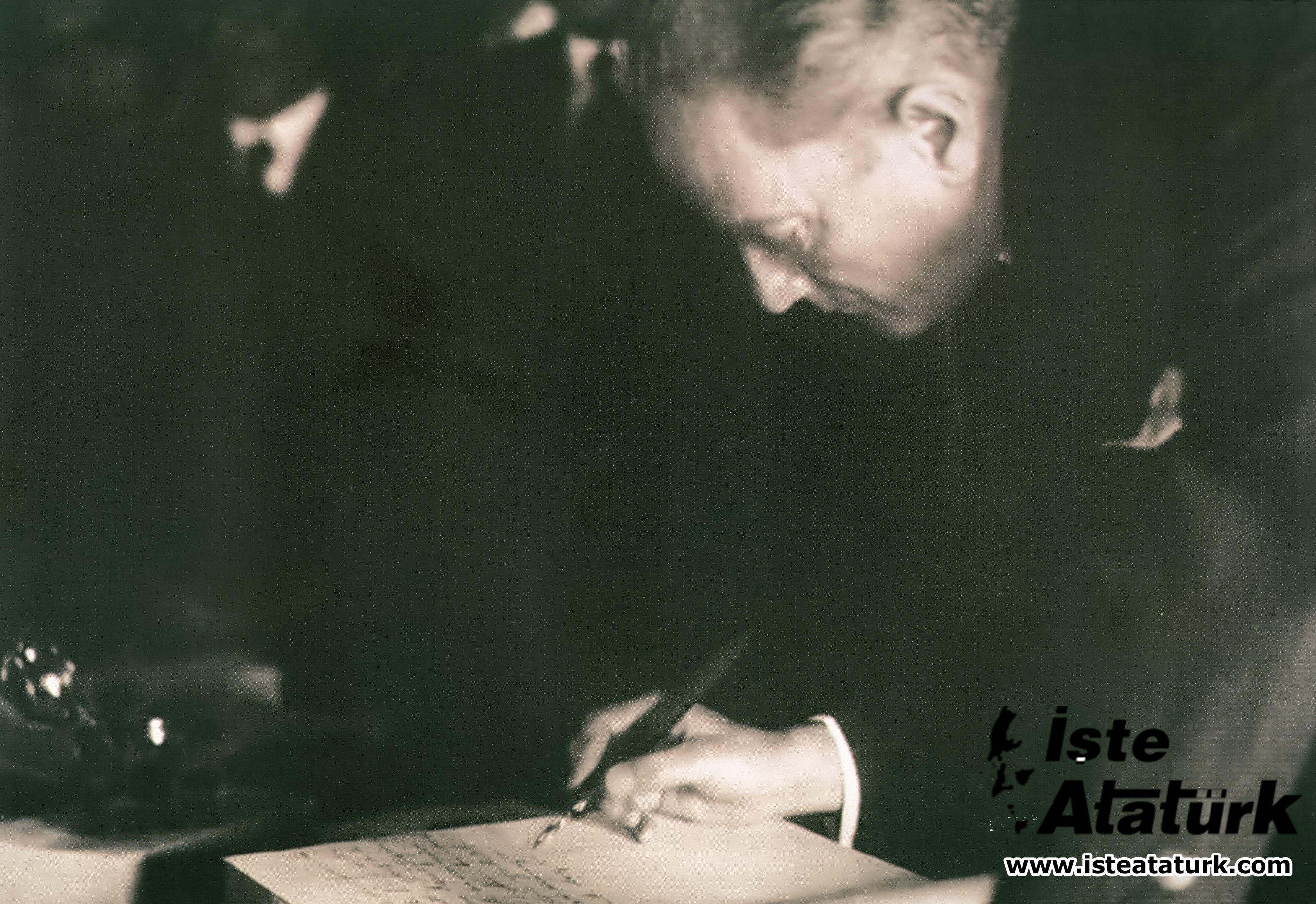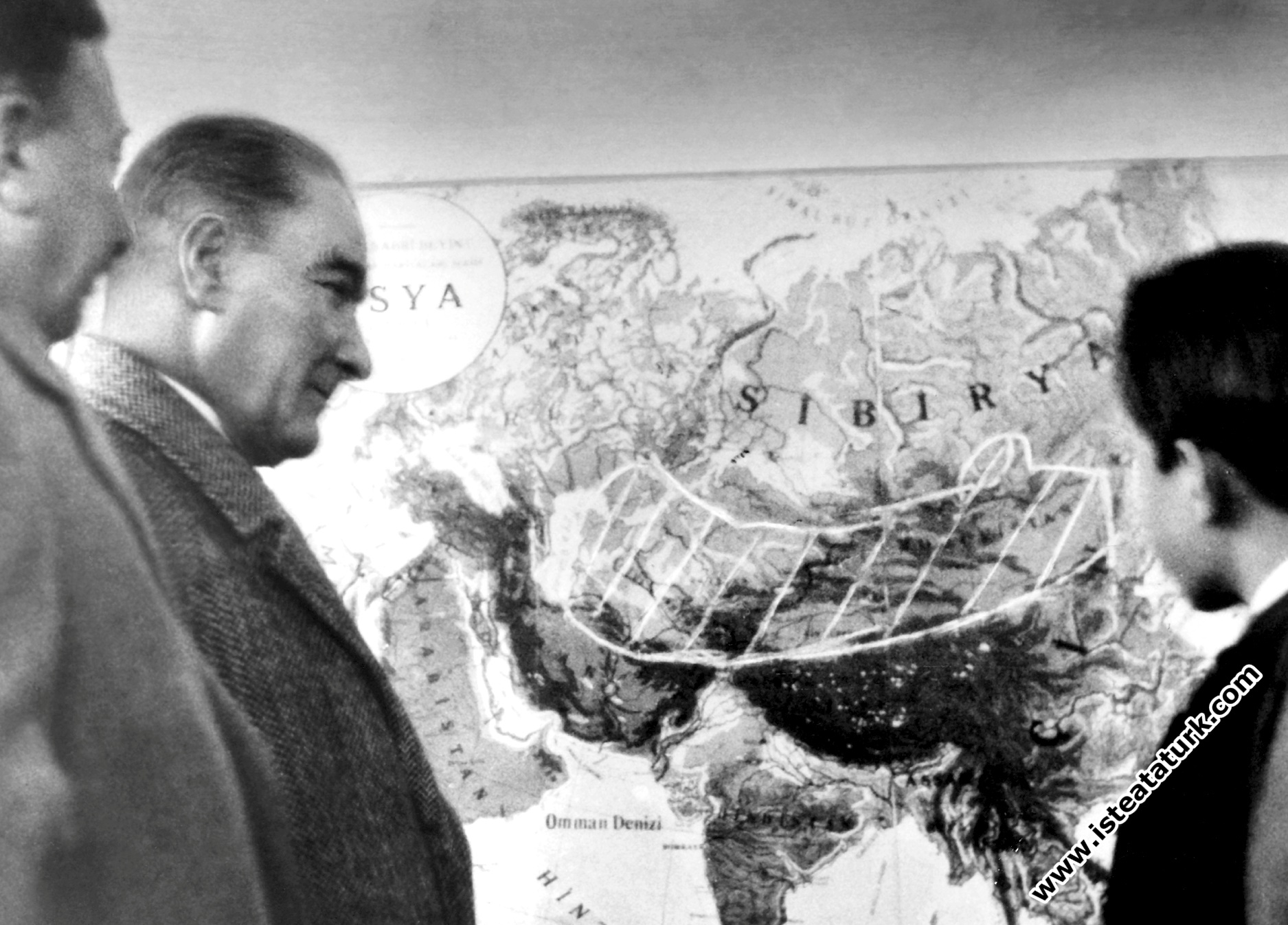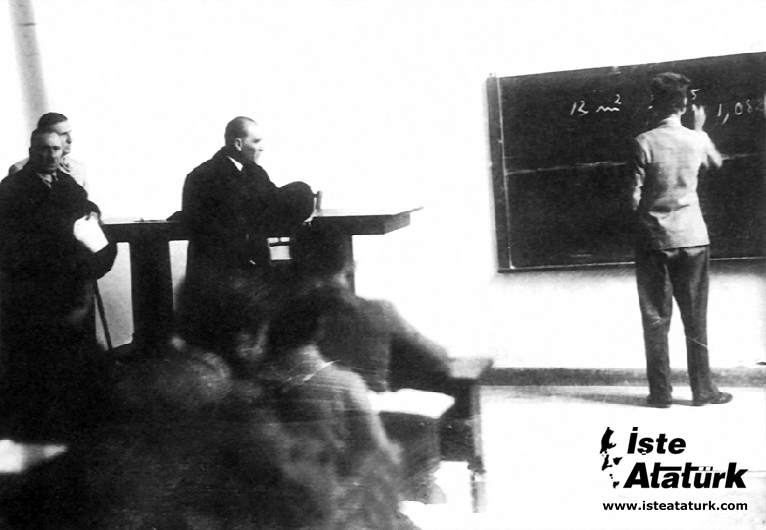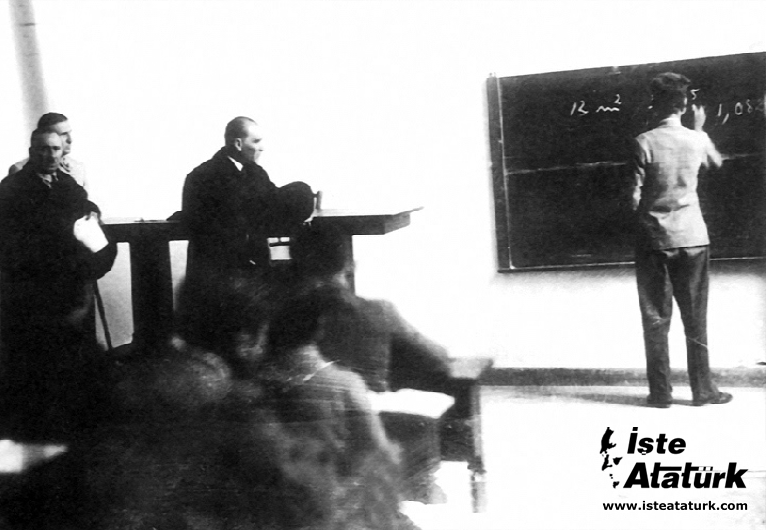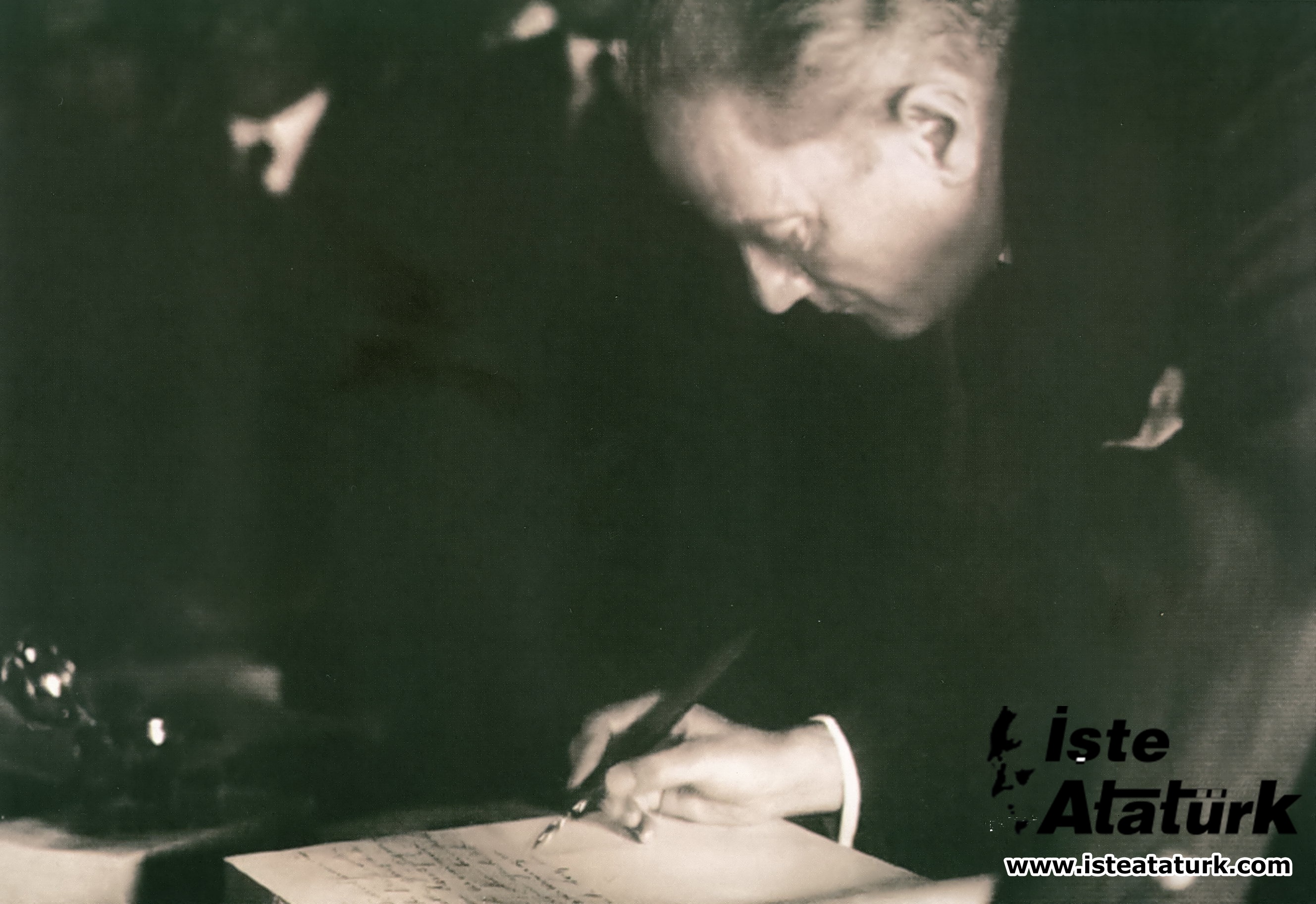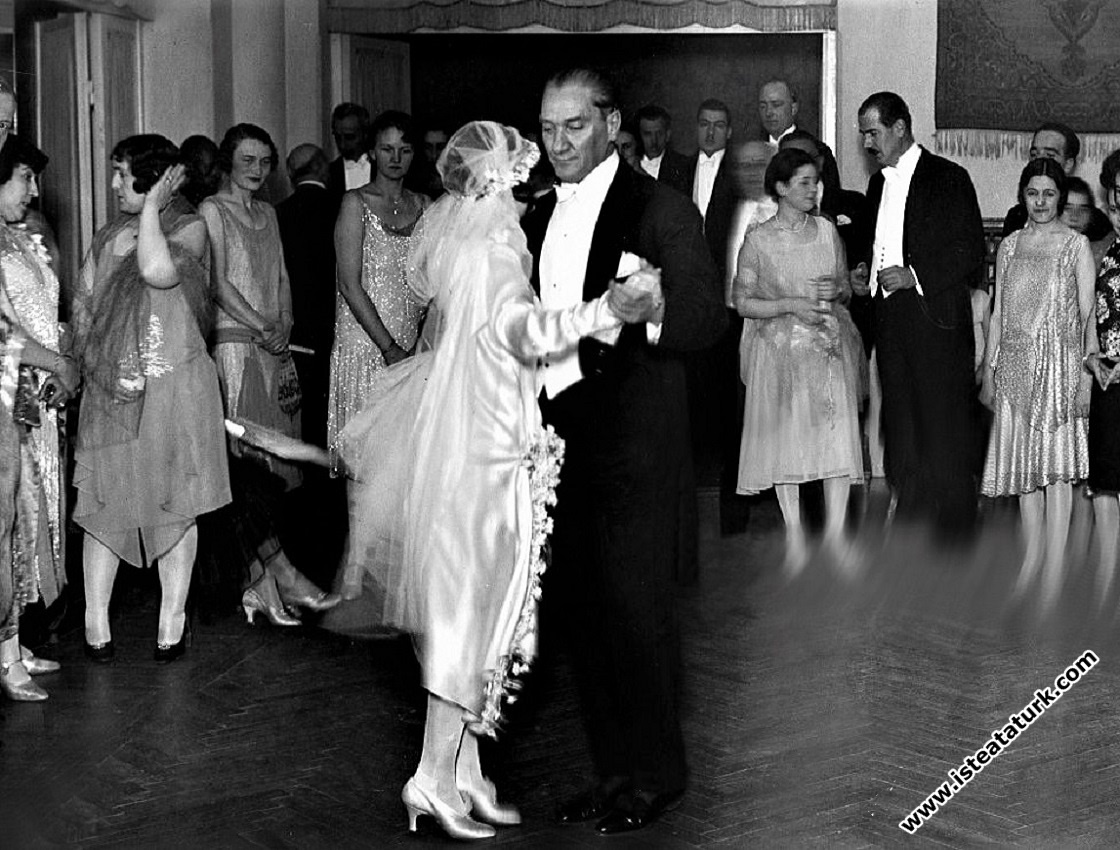
Atatürk and the Contemporary Turkish Woman
Character Size
“Is it possible that as half of a society remains chained to the land, the other half rises to the skies? There is no doubt that the steps of progress should be taken by the two sexes together as I said, and should be taken together in the field of progress and innovation.” Mustafa Kemal Atatürk
ATATÜRK AND THE CONTEMPORARY TURKISH WOMAN
Even in the most civilized societies, prejudices have existed for ages regarding girls and women. For example, a newborn girl is thought to be "frangible, weak, and thin"; whereas “the boy is strong, solid and is the symbol of the future.” A lot of unfounded thoughts have been thought about women, and these thoughts have been expressed as if they were real from time to time. However, a woman is a mother, a sister, a wife. In one sense, it is sacred, necessary, indispensable. In this respect, it is necessary to determine the status of women in society on the basis of respect for personality, which is the only symbol of people's freedom. It is imperative to raise his living conditions, intellectual and cultural level. A nation's place in civilization should be determined by the value it gives to women and the rights it recognizes. The more primitive the society, the less it belittles its woman and cannot give her the necessary value. The circumcision of girls, which is an extremely terrible and primitive tradition due to reasons such as insecurity and male self-interest in the African continent, and the fact that the injuries and deaths caused by this event are known even today, and are expressed in writing, is as sad as it is frightening1. Contrary to these observations, countries where women have rights and freedoms by law are civilized and developed countries.
Turkish women owe their existence to their Great Ancestors, who often stated that women are the foundation of society in all respects. Also, Turkish women are lucky; Because our Republic was founded and directed by a leader like Atatürk, who combined contemporary thought and contemporary action in his personality.
The following words of Atatürk in 1923 clearly emphasize the value of Turkish women in the development of the Turkish nation: “Our nation has determined to be a strong nation. One of the requirements of today is to ensure that our women are promoted in every aspect. For this reason, our women will also have scholarly and technical knowledge, and they will go through all the education levels that men go through. Then, women will be each other's helpers and protectors by walking together with men in social life.”2
It is seen that Atatürk and intellectuals who think like him adopted and defended the view that women should study together with men, take part in social, cultural and economic life side by side with them, and that both sexes should support and help each other with confidence. On this subject, Atatürk from time to time called out to his nation and warned them: "Is it possible that as long as half of a society remains chained to the land, the other half rises to the sky? There is no doubt that, as I said, the steps of progress should be taken together by the two sexes as friendly and together in the field of progress and innovation. gained its rights and freedom long before the countries that considered themselves developed and civilized.
The Turkish woman deserved some rights in return for the great effort she and her men showed in the War of Independence and the establishment of the Republic. Great Atatürk gave the Turkish woman, who was condemned to live behind a cage in the Ottoman era, equal rights with her man in the political and economic field on October 4, 1926, with the Turkish Civil Code. With the amendment made in the Constitution on 5 December 1934, women were given the right to elect and be elected as a deputy.4 These rights are indispensable for Turkish women. Turkish women should have a say in the administration of their country as much as their men; this is his natural right. It should not be forgotten that the world community has accepted this situation regarding the rights of Turkish women as the most distinctive feature of the Turkish revolution.
In fact, not one but all of the revolutions that took place with Atatürk directly and indirectly provided rights to Turkish women5. With the Law of Tevhid-i Tedrisat (Unification of Education), our girls started education and training together with our boys. Events such as the alphabet reform, the ease of reading and writing, the dress reform, and the woman's throwing of the veil and chador saved the Turkish woman from the oppressed and unequal situation, and enabled her to direct her life as an honorable, secure, knowledgeable and social being next to the man.
Today, almost every branch of education is open to Turkish women. Our women who have proven their scientific power should not be underestimated. Women have a say in the field of politics, albeit a small number, and they are active. Women are active and successful in the field of industry and commerce as well as in the technical field; It is seen that our public and private institutions are as successful as men.
Her subtle and emotional nature has made Turkish women internationally famous in various branches of the art world. The fame of those who use their pencils and brushes skillfully, those whose lives we are proud of, those who give life to mud and marble, and those who integrate with the stage, have now spread abroad. In the field of social work, women can carry out their voluntary work with the associations they have formed at the international level, together with their real profession and without difficulty.
Elizabeth Blacwel was the first female physician to receive a diploma in the history of the world in 1849, and she was only able to start working ten years later. Turkish women wanted the profession of medicine even before the Republic; but this request was turned down. In 1922, with the efforts of Besim Ömer Pasha, seven female students were admitted to Haydarpaşa Medical Faculty. Thanks to the republican administration, we see that six female physicians started to work in 1928. 6 Despite the fact that Turkish women entered the field of medicine 60-70 years after the west, our female physicians in our country are far ahead of western countries. They are also of great value in terms of knowledge and skills. The achievements of our women in law, political science, engineering, teaching and other professions are dazzling. This is undoubtedly a source of happiness and honor for our nation. Our women, They know the value of the rights and freedom that Atatürk gave them by law. For this reason, his devotion to his Ataci will not change and will not decrease as the world stands.
1 People, Africa Special Report, 6 (1979)
2 Atatürk's Speeches and Statements II, p. 85-86 8 Atatürk's Discourses and Statements II, p. 219
4 Ülker Gürkan : Women in the Republic, Atatürk University 50th Anniversary Award, p. 2, 1976
5 Nermin Abadan-Unat : Social Change and Turkish Women, Ankara University Press, 1963
6 Turkish Women in Their Fields in the 50th Anniversary of the Republic, Sermet Printing House, Istanbul, 1974
Prof. Dr. Yıldız Tümerdem
Source: ATATÜRK ARAŞTIRMA MERKEZİ DERGİSİ, Sayı 7, Cilt: III, Kasım 1986
